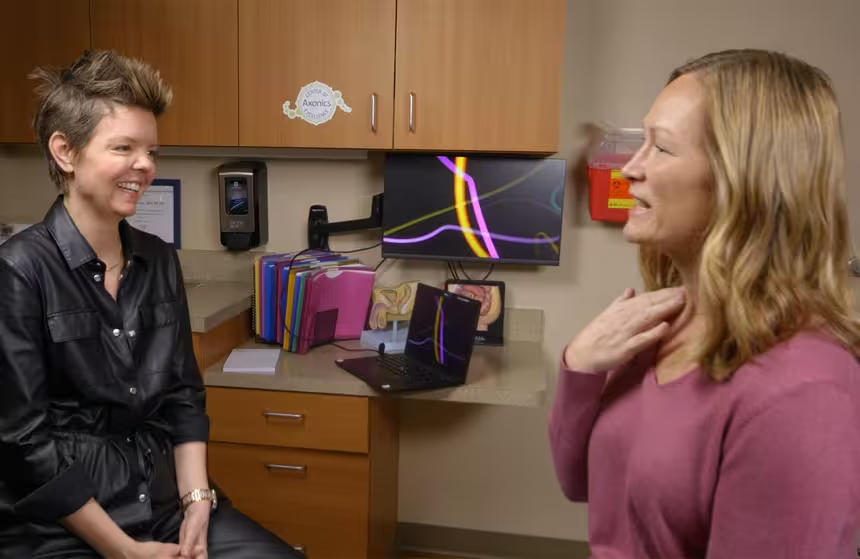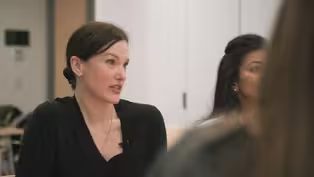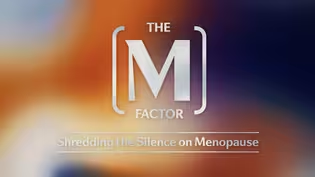
Dr. Kelly Casperson explains how testosterone is useful for menopauseal women
Clip: 10/17/2024 | 2m 30sVideo has Closed Captions
Dr. Kelly Casperson explains how testosteroe is necessary for menopausal women.
Dr. Kelly Casperson does a deep drive into the advantages of adding testosterone to the hormone replacement therapy that menopausal women use. Dr. Casperson explains how a lack of testosterone can result in depression, bone loss, fatigue and brain fog. She interacts with two of her patients who were struggling until she was able to prescribe testosterone which significantly improved their lives.
Problems playing video? | Closed Captioning Feedback
Problems playing video? | Closed Captioning Feedback

Dr. Kelly Casperson explains how testosterone is useful for menopauseal women
Clip: 10/17/2024 | 2m 30sVideo has Closed Captions
Dr. Kelly Casperson does a deep drive into the advantages of adding testosterone to the hormone replacement therapy that menopausal women use. Dr. Casperson explains how a lack of testosterone can result in depression, bone loss, fatigue and brain fog. She interacts with two of her patients who were struggling until she was able to prescribe testosterone which significantly improved their lives.
Problems playing video? | Closed Captioning Feedback
How to Watch The M Factor: Shredding the Silence on Menopause
The M Factor: Shredding the Silence on Menopause is available to stream on pbs.org and the free PBS App, available on iPhone, Apple TV, Android TV, Android smartphones, Amazon Fire TV, Amazon Fire Tablet, Roku, Samsung Smart TV, and Vizio.

Discussion Guide
For resources, discussion questions, and more, explore the M Factor Discussion Guide.Providing Support for PBS.org
Learn Moreabout PBS online sponsorship- I love the topic of testosterone.
I'm a urologist, which gives me a very unique training coming into women's health and menopause.
And the reason for that is I give people 10 times the dose of testosterone every day.
They're called men, but I can't just come in and say, I wanna start you on testosterone because women don't know that they even have testosterone in their bodies.
So I really have to do the education before a woman will accept testosterone, which is fair.
The other unique thing about testosterone is it's really kind of been heralded as the hormone for libido.
I would argue estrogen is also a very good libido drug.
But testosterone's profoundly important for muscle, recovery after workouts, our bone health, our mental health, mood and depression.
So we're starting to research the effects, but all you have to do is start giving women physiologic, female dose testosterone and they come back and they say, I feel like myself again.
And you can't measure that, how do you measure I feel more like myself?
So how does a woman get testosterone in the United States of America today?
The most common option is to use a male product, just dose it for women's physiology.
And that on average is about one 10th the dose.
The tough part about that is it's very hard to dose a small packet of testosterone gel.
So for women you have to say take one packet, which is like a ketchup packet and you have to open it up and then you dose it over 10 days.
How do you dose this appropriately over 10 days?
The other problem, you take it to Rite Aid, Walgreens, whatever your conventional pharmacy is, your insurance won't cover it 'cause it's non FDA approved.
So men get it covered.
People who are transitioning to men get it covered.
Only the women don't get it covered by insurance.
- When you gave me the testosterone, you said it could take two to three months, but at about two months it was very, very noticeable.
- What'd you notice?
- Well I had a friend just tell me, you are so different.
And I said, well how am I different?
And she said, you're just not negative anymore.
I wasn't happy, and yeah, that's what my husband said too is you're just happier.
I said, yeah, I am.
- I think one of those most damaging things we did to women is that we made them afraid of something their body naturally makes.
I think it's devastating.
Dr. Sharon Malone and other experts define menopause and its symptoms
Video has Closed Captions
Clip: 10/17/2024 | 2m 10s | Experts Sharon Malone, Stephanie Faubion, Somi Javaid, Kelly Casperson explain what menopause is. (2m 10s)
Neuroscientist Lisa Mosconi explains the connection between the brain and estrogen
Video has Closed Captions
Clip: 10/17/2024 | 2m 7s | Dr. Lisa Mosconi explains the effects of loss of estrogen on the brain. (2m 7s)
Video has Closed Captions
Preview: 10/17/2024 | 30s | The first documentary film on the health crisis faced by millions of women going through menopause. (30s)
Providing Support for PBS.org
Learn Moreabout PBS online sponsorshipSupport for PBS provided by:


















